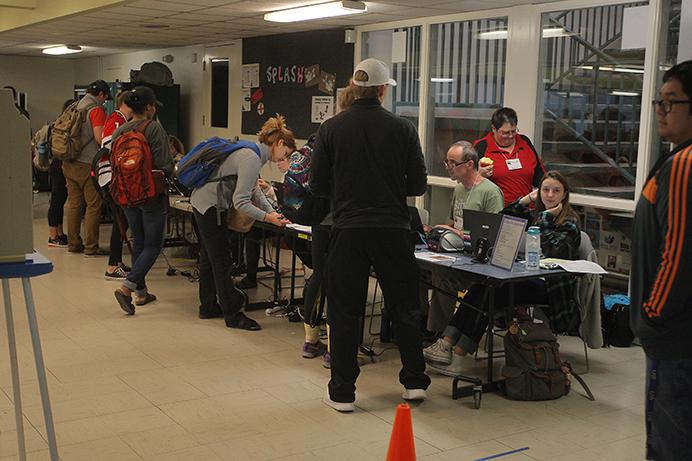Since the beginning of his presidential campaign, Donald Trump has painted a picture of himself as the only person capable of bringing about the lofty changes he proposed. Now, after failing to pass a replacement bill for Obamacare, the president has returned to what he knows best: lying.
Following the collapse of the American Health Care Act, Trump claimed that he never said the bill would be an easy or swift change. Yet several recordings of his speeches seem to show him expressing the quick, if not “immediate” repeal and replacement of Obamacare. Even his 100-day plan includes this goal. With fewer than 30 days left in his first 100 days, this is pretty unlikely.
Trump’s promise to make grandiose changes is a brilliant move; he is merely playing to a distorted view of presidential power held by many Americans. It’s time, the Daily Iowan Editorial Board believes, to work toward shifting the mindset of the American public away from presidential elections and toward the effect of local and state elections.
According to FairVote, a nonpartisan, nonprofit organization seeking to “make democracy fair, functional, and more representative,” voter turnout for the 2016 presidential election was approximately 60 percent. Voter turnout for the 2014 midterm elections, on the other hand, was an abysmal 35.9 percent — the lowest it has been in more than 70 years. Incidentally, Iowa’s 50.2 percent voter turnout in 2014 ranked seventh-highest among the 50 states and Washington, D.C.
This is simply unacceptable; it represents a drastic issue in American society.
American voters seem to believe that presidential elections have significantly more effect on their lives than state elections. Although the president may be the single individual with the most power, he or she is only as powerful as Congress and the Supreme Court will allow her or him to be. The system of checks and balances in the United States does not allow any branch of the government to truly act unilaterally — it is one of the key tenants of our government that separated it from the monarchies of the late 18th and early 19th centuries.
Presidential elections are, in a way, sexier than local elections. Every news outlet around the world is focused on the state of the U.S. federal government and, in many ways, is focused on the state of Iowa. Presidential candidates who draw massive audiences bring celebrities with them to small towns across the Midwest as they pander to voters.
State governments play a role in deciding both the state of our states and the ability of presidents to make decisions. For example, former President Barack Obama’s Supreme Court nomination, Merrick Garland, never really had a chance of making it to the Supreme Court because the Republican-controlled Congress (and Judiciary Committee head Sen. Chuck Grassley) never allowed it. Whether Neil Gorsuch or Garland is the right man for the job is neither here nor there. The point is, if Democratic voters had gone to the polls in 2014, the future of the Supreme Court would look much different.
Moreover, if Obama had not been faced with a Congress unwilling to accept any of his positions, the country would undoubtedly look different today. This is not a partisan statement arguing that if voters had turned out in 2014, the country would be better off. Rather, it is a statement that if Americans want to have a say in the political future of their representative democracy, then they better start getting out to the polls when it counts, not just when it’s flashy.



